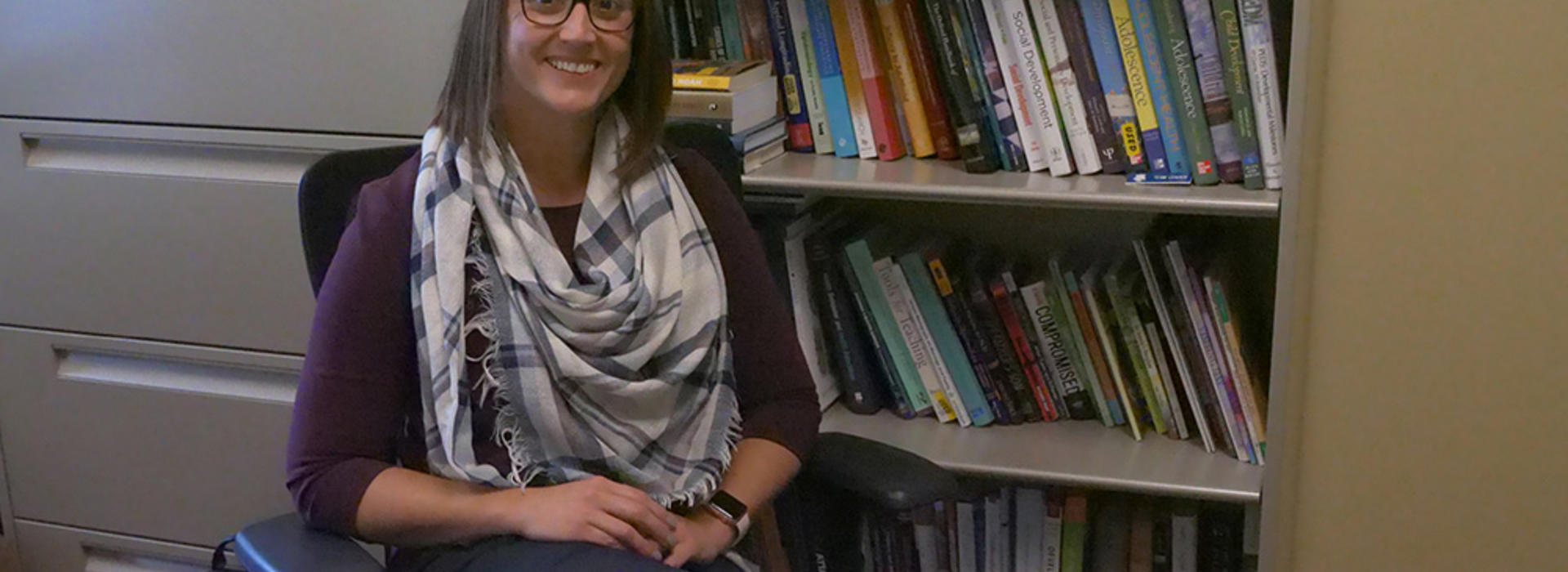
Gov. Walz Appoints U of M Medical School Professor to Children’s Cabinet
A University of Minnesota Medical School faculty member will soon take her experiences and research to the Minnesota State Capitol as the newest member of the re-launched Children’s Cabinet Advisory Council.
Rebecca Shlafer, PhD, MPH, an assistant professor in the Department of Pediatrics, recently received notice of her appointment by Gov. Tim Walz. Among the 200 applicants seeking to serve, Dr. Shlafer will join a team of 15 leaders from across the state that is dedicated to executing the mission of Executive Order 19-34—placing children at the center of government.
“For me, what’s exciting about the Children’s Cabinet is the opportunity for people to think about complex issues from a cross-agency perspective and figure out ways that our systems can work better together to support some of our most marginalized communities,” she said.
Children have been at the center of Dr. Shlafer’s research for many years. Her first exposure to issues impacting child wellbeing began in an undergraduate research study where she interviewed grandparents who raised their grandchildren.
“A lot of those early interviews led me to start thinking more about the circumstances under which grandparents came to raise their grandchildren,” she said. “As I meet and work with more children and families, I’m frankly frustrated. In large part, I'm frustrated by our collective failure to address the health needs of all Minnesota children.”
Today, her team of researchers uses that frustration as fuel to lead studies with direct implications on the state’s practices and policies, specifically at the intersection between criminal justice and health.
“About one in six Minnesota youth is impacted by their parent’s incarceration. That’s a lot,” Dr. Shlafer said. “And, we know that kids who have incarcerated parents are disproportionately youth of color, they’re more likely to be poor, they’re more likely to be disengaged from school and they’re more likely to use substances. When we think about parental incarceration as being one adverse childhood experience that is strongly correlated with other adverse childhood experiences, then we start to layer on that adversity, and that’s not good for child development or for communities.”
For three years, her team observed children’s visiting experiences with their incarcerated parents at the Washington County jail, Dakota County jail and two other jails in Wisconsin. Now, they are working with several other jails across the state to improve the visiting spaces and policies to support children and their families.
“We know that these kids often have experienced a number of traumas—whether that’s witnessing the arrest of their parents or being present when their parents are going through the court process—we don’t want this part of the system to be retraumatizing,” she said.
Dr. Shlafer’s research also led to the state’s first collection of data on parental incarceration. She’s used data from the 2013, 2016 and 2019 Minnesota Student Survey, which is taken by more than 100,000 Minnesota youth every three years, to add two critical questions to the survey. The latest question added asked if students were living with their parent at the time that their parent was incarcerated. That data is helping Dr. Shlafer and her team to better understand the “constellation of risk factors that children experience when a parent goes to jail or prison, but more importantly, how to support them.”
“I think the biggest accomplishment has been getting a handle on the scope of this problem for our state,” she said. “This is not something that our state systematically collects information on, so having a sense of how big this problem is in Minnesota is huge.”
Now as part of the Children’s Cabinet, Dr. Shlafer looks forward to sharing that scope and her research with a team of professionals who possess the tools to support the state’s children and families.
“I deeply value being a part of our state’s land-grant institution. I take that mission very seriously,” she said. “It’s very fulfilling to have this opportunity to take the work that we have at this institution and give it back, which is what I signed up for as a professor at a land-grant institution—to give away the science.”